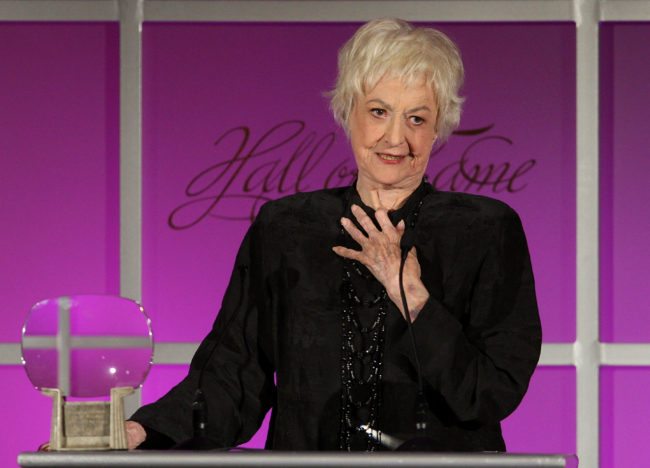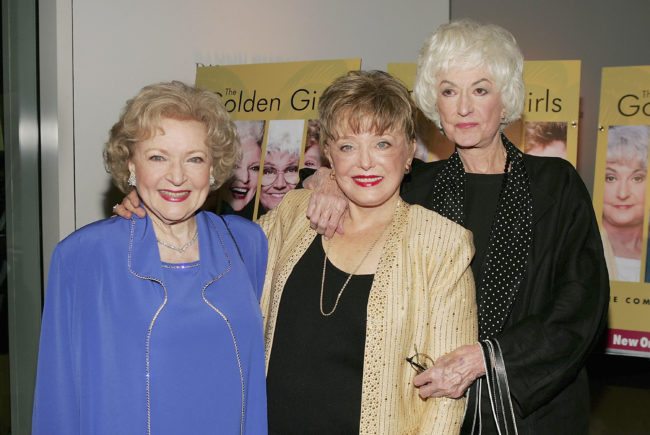Bea Arthur LGBT homeless shelter opens just in time for Christmas

An LGBT homeless shelter in honour of Golden Girls star Bea Arthur has just opened just in time for Christmas.
Bea Arthur, who died in 2009, left $300,000 in her will to the Ali Forney Center, which works to help LGBT homeless youths in New York.
Seven years on, and the charity has just unveiled a new 18-bed shelter, the Bea Arthur Residence.

Getty
The centre opened on 30 November in an existing building at 222 E. 13th Street in Manhattan, funded thanks to the money left by Arthur.
Arthur often praised the charity in her later years, saying: “These kids at the Ali Forney Center are literally dumped by their families because of the fact that they are lesbian, gay or transgender. This organisation really is saving lives.”
RELATED: Gay Golden Girls ‘reboot’ confirmed by show’s original writer
A spokesperson said: “We are excited by the progress to the Bea Arthur Residence, which looks like it should be ready to open in the spring of 2017. It will be a beautiful home for our young people.”
The Ali Forney Center’s Executive Director Carl Siciliano said previously: “We hope that we will forever be protected under Bea’s watchful eye.

(getty)
“All our icons and gay history are an important part of our work.
“While we haven’t decided if cheesecake baking will be part of our life skills program, we will most certainly be serving cheesecake on our opening night.
“We will be applying for a formal proclamation from the Mayor’s Office proclaiming [the day we open] Bea Arthur Day!”
“We are proud to dedicate this residence in her honour, and humbled to celebrate this momentous occasion alongside Bea Arthur’s son and grandson,” Siciliano added on the opening of the centre.

Getty
“The Bea Arthur Residence marks an important shift in the way that we are able to house and care for young people who have been discarded by their families simply because of who they are. Pending city approvals, we hope to begin housing young people here within the next few weeks.”
LGBT people are disproportionately likely to experience homelessness and problems securing housing, especially as young people.
40% of homeless youths identify as LGBT.

